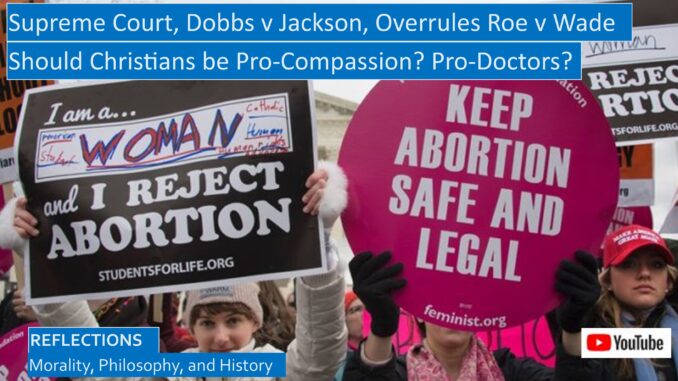
Sometimes I get the impression that many who see themselves as devout Christians believe that if you choose to judge those single women who contemplate abortion, then that is virtue; but if to choose to show compassion for anyone considering this horrible decision, then that compassion is somehow contrary to Christian values.
Why do I say this? Because many of my Christian friends only want to see the short memes, if they come across a serious and longish article that even suggests that we should feel compassion towards any mother considering abortion for any reason, many want to jump to a knee-jerk conclusion the author must somehow be saying that it is OKAY TO KILL BABIES.
We need to change the narrative. To say you are pro-life implies that your opponent is pro-death, how judgmental is that? But to say you are pro-choice implies that you wish to live life only by rules you manufacture, that there is no objective standard of truth and virtue that you should strive for. We need more people in the world who truly love their neighbor as themselves, who are pro-compassion.
YouTube video for this script: https://youtu.be/Jb_vUFnAf3g
YouTube script with more book links: https://www.slideshare.net/BruceStrom1/should-christians-be-procompassion-prodoctors-supreme-court-dobbs-case-overruling-roe-v-wade
NEED FOR COMPASSION
There are some really heart-breaking situations involving abortion. Should abortion be allowed if the mother’s and/or the baby’s life is in danger? Should abortion be allowed in case of rape or incest? Should abortion be permitted if it is likely the mother would otherwise commit suicide? Should abortion be permitted to reduce the number of deaths caused by botched abortions by coat hangers or Lysol?
You show no respect when you judgmentally shout at someone who is forced to make a really difficult life decision, whether it is a difficult pregnancy, divorce, whether to place parents with dementia in a nursing home, they do not need your shouts, they need you to listen and show compassion. Compassion is what shows the world that we are truly Christians. Demonizing ladies who are pondering pregnancies, particularly ladies with problem pregnancies, whether their life and/or the life of their unborn child is in danger, does not help. Jesus was compassionate towards sinners, so should we be compassionate with our neighbor, even if we question our neighbor’s moral decisions.
AN IMPORTANT RIGHT THAT HAS BEEN IGNORED BY ALL SIDES
There is an overriding and critical right that should be protected that all parties have overlooked: the right of qualified medical doctors to make professional medical decisions for the benefit of their patients with minimal interference from courts and governmental agencies. If doctors and hospitals are forced to worry about whether they will be sued, they will be hindered in providing proper care, and more of their patients will die.
Many of these draconian laws don’t provide an exception for abortions when the life of the mother and infant is endangered. But even when there is a humane exception this fact remains: While there are clear cut cases where the mother’s or infant’s life is endangered if the pregnancy is carried to term, quite often whether life is endangered is a matter of professional judgement. We need to protect the right of doctors to make the professional judgements without fear of lawsuits, this is why they attend medical school for so many, many years.
PRIOR REFLECTIONS ON ABORTION
Our prior reflection on Roe V Wade included:
- Reflections on Catholic Catechism teachings on abortion.
- History of abortion, and moral dilemmas posed by abortion.
- History of Roe v Wade, and reflections of actual opinion.
- Reflection on which moral values should be enforced by the state.
A Democrat Christian Ponders Abortion and Morality: https://youtu.be/C4rH6qhhw70
SUMMARY OF MY PERSONAL BELIEFS
- I agree 100% (one hundred percent) with the Catholic teachings on abortion in the catechism.
- The opposite of pro-life is pro-death, not pro-choice. I am uncomfortable with a radical, in all cases, pro-choice position, but as a Christian I am always PRO-COMPASSION, compassionate towards the unborn, the born, the mother, the doctors, the poor, the sick, the family, and towards low-income workers.
- Pro-life concerns DO NOT end at birth, pro-life concerns are from cradle to grave, not just from conception to birth
- Our Christian two-fold love of God and neighbor means we must be compassionate towards those who face difficult decisions in their lives, even if we feel that they are considering immoral actions.
- Abortion is always a personal moral decision. If the government permits mothers with their doctors to make this decision when the mothers and/or children’s life is in danger, this does not mean that the government seeks to kill babies.
Abortion is a complex issue, these are my further reflections, and I am not going to read them here, my prior video has the context for these reflections. To summarize:
- We reflected on the scenarios when abortion is considered.
- We reflected on how abortion affects differently the wealthy, the middle class, and the poor women of our society.
- We reflected on ways where we can be more compassionate about the issue of abortion, how we can respectfully encourage healthy morals in issues surrounding abortion.
SUMMARY OF MY PERSONAL BELIEFS (continued)
There are basically three scenarios:
- The minority of the cases, less than 5%, where the life of the mother and/or the child is DEFINITIVELY in danger if no abortion is performed.
My personal belief is that the doctors should be allowed to make professional judgements without political and irrational interference, that this should be a JOINT choice between the doctor and the mother. (Note: I do not address the implications of this and/or clause.) - A large minority of cases where the life of the mother and/or the child is PROBABLY in danger if no abortion is performed.
My personal belief is that this should still be a JOINT choice between the doctor and the mother, without any political interference into what is a medical decision, and if this is abused by a liberal doctor, then that is a matter between him and Jesus. - The overwhelming majority of cases where the mother simply wants an abortion:
The Catechism clearly states that the state should be discouraged from enacting sweeping
pro-choice legislation when there are minimal health issues involved.
Some states may legislate radical pro-choice initiatives, as Christians have lost influence politically, but Christians should always show COMPASSION, and ENCOURAGE DEMOCRACY.
The problem of abolishing abortion in the cases where there are no medical issues involved has three scenarios:
- WEALTHY WOMEN will always be able to choose abortion.
Just like it is always five o’clock somewhere, so also there will be somewhere where abortion is legal, and wealthy women will always fly there to abort at will. - MIDDLE CLASS AND POOR WOMEN who know that Dr Google knows most everything, can ask Dr Google how they can RELATIVELY safely self-abort. This was not true decades ago.
(But NOBODY should attempt an abortion on their own with no doctors around.) - MIDDLE CLASS AND POOR WOMEN who do not know about Dr Google will often endanger their lives, and the lives of the unborn, using Lysol and coat hangers in efforts to abort.When the mother is poor, perhaps black, she lives in a Bible-belt state with a social safety net that is thin and shredded, this is highly hypocritical; in this scenario I would also be friendlier to a pro-choice stance. The Lord would not favor anyone who would throw the first stone in this scenario.
So, my personal belief is this: I am morally distressed about a pro-choice position where there are minimal medical risks, but the reality is that there is room in our federal system for each state to choose a position on the issue of when to permit abortions.
But, as a Christian, these steps are morally defensible. We should encourage mothers to continue their pregnancies but refrain from beating them over the head with our judgmental attitudes.
- The government can require that mothers be informed about the consequences of their actions; and be assured that it is their personal decision, by mandating education, sponsoring support groups, and, in general, slowing the process down when there are no medical issues.
- Everyone, especially the poor and disadvantaged, should be guaranteed medical and pre-natal care, and Medicaid should be integrated with Obamacare in all states.
- Everyone who works for a living should be ENTITLED to a living wage, a living minimum wage, where they can afford to provide food, clothes and shelter to their families; living with dignity.
- College should be made affordable once again, students should not have to acquire massive debt to pay off college tuition, nobody should be shut out of earning an education.
- Even when a democratic government permits a radical pro-choice policy, a true democracy is always preferable to a totalitarian regime under a dictator.
WHAT HAS CHANGED SINCE ROE V WADE, AND SINCE 1868
Justice Alito delivered the majority opinion, three justices wrote concurring opinions, and Justices Breyer, Sotomayor, and Kagan filed a dissenting opinion. Just as we read the actual Roe v Wade opinion, so we also read over the Dobbs v Jackson Women’s Health Organization that overturned Roe v Wade.
Justice Alito in the majority opinion of Dobbs says this: “The Court finds that the right to abortion is not deeply rooted in the Nation’s history and tradition.”
However, the dissenting justices point out that early state laws in the US do provide support for abortions before the fetus quickens, or moves in the womb.
Since Roe and the Casey opinion upholding Roe were founded on the Fourteenth Amendment guaranteeing due process, the majority makes a big show of showing how the majority of states outlawed abortion in 1868.
What does this prove? Mainly, that abortion, and any medical operation, was exceedingly risky in 1868. Do you remember the Civil War movies where patients swilled bottles of whiskey before the doctors got out their saw to perform their operations? In 1868 medicine was primitive. Doctors were experimenting with chloroform and anesthesia at the time, the techniques would not be perfected until later in the century. Given the primitive state of medical science at the time, the fact that most states outlawed abortion in 1868 should not surprise anyone.
Not only has medical science advanced since 1868, but even from the time of Roe v Wade up to the present day there have been advances in medicine. At the time of Roe v Wade, abortion was much more dangerous than childbirth, but today that is no longer true.
Another morally troubling discovery is the abortion pill, today half of the abortions in the United States use this method. This horrible technology was perfected in the decade following Roe v Wade, this drug is available over the counter in some foreign countries, including India.[1] How many illegal abortions use this pill?
Another factor not often addressed in the Dobbs opinion, nor in most religious debates, is the unfortunate development that do-it-yourself abortions are far safer than they were in the past. If you have an internet connection, the knowledge is at your fingertips. But for poorer women with little education who attempt abortion by Lysol injections, a painful death is often the consequences for both mother and baby.
REVIEWING THE MAJORITY OPINION
Justice Alito aptly summarized the majority position on abortion:
“Abortion presents a profound moral issue on which Americans hold sharply conflicting views. Some believe fervently that a human person comes into being at conception and that abortion ends an innocent life. Others feel just as strongly that any regulation of abortion invades a woman’s right to control her own body and prevents women from achieving full equality. Still others in a third group think that abortion should be allowed under some but not all circumstances, and those within this group hold a variety of views about the particular restrictions that should be imposed.”
Likewise, Alito accurately stated that “Casey threw out Roe’s trimester scheme and substituted a new rule of uncertain origin under which States were forbidden to adopt any regulation that imposed an ‘undue burden’ on a woman’s right to have an abortion. The decision provided no clear guidance about the difference between a ‘due’ and an ‘undue’ burden.”
Which is a puzzling criticism, since many Supreme Court decisions have such vague guidance. We can see such vague guidance in Brown v Board of Education, where the Supreme Court ruled that desegregation should proceed with all due deliberate speed. What did the court mean by deliberate speed? How can speed be deliberate?
Justice Alito casually dismisses the historical summary of abortion in the written opinion of Roe v Wade as irrelevant, but he is missing the point. Justice Blackmun, who wrote the opinion, included much history of abortion that was admittedly legally irrelevant, but he was also respectful of the deeply held opinions of the faithful, so he felt compelled to also review the opinions of the church fathers and the ancient philosophers. Blackmun spent many more months and far more thought in drafting Roe v Wade than Alito did in drafting his Dobbs opinion.
The dissenting justices criticize this statement by Justice Alito as deeply hypocritical, saying that the only reason Roe v Wade was overruled was because a super-majority of conservative Republican justices were appointed to the Supreme Court. Justice Alito states that “the American people’s belief in the rule of law would be shaken if they lost respect for this Court as an institution that decides important cases based on principle, not ‘social and political pressures.’”
Justice Alito spends much of the opinion comparing Dobbs, which overruled Roe v Wade, to the Brown v Board of Education opinion. Brown mandated school desegregation using “all deliberate speed,” overturning the Plessy v Ferguson doctrine of “separate but equal,” which sanctioned the Jim Crow segregation system that held blacks in a subservient position until the civil rights era. He argues that Dobbs overruling Roe is following in the footsteps of how Brown overruled Plessy.
We found this comparison between Dobbs and Brown to be bizarre, and we agree with the article in the Atlantic Magazine that argues persuasively that the logic of the Dobbs opinion is closer to Plessy than it is to Brown.
WHAT DOES ORIGINALISM MEAN?
Justice Alito summarizes: “We end this opinion where we began. Abortion presents a profound moral question. The Constitution does not prohibit the citizens of each State from regulating or prohibiting abortion. Roe and Casey arrogated that authority. We now overrule those decisions and return that authority to the people and their elected representatives. The judgment of the Fifth Circuit is reversed, and the case is remanded for further proceedings consistent with this opinion.”
In his opinion, Alito appears to provide lip service to the Fourteenth Amendment, and the Originalism Judicial doctrine that the conservative justices ascribe to does state that the original intent of those who drafted the amendment should prevail.
But the point of the Fourteenth Amendment is that the people and their elected representatives DO NOT have the final authority to deny due process to their citizens.
This is the wording of the Due Process clause of the Fourteenth Amendment:
“No State shall make or enforce any law which shall abridge the privileges or immunities of citizens of the United States; nor shall any State deprive any person of life, liberty, or property, without due process of law; nor deny to any person within its jurisdiction the equal protection of the laws.” [2]
We can clearly comprehend why the Fourteenth Amendment was necessary when we reflect on the recalcitrance of the Southern states during and after the Civil War in this review of American History:
- Civil War begins when Southern states secede, contesting the election of Abraham Lincoln as President, fearing the abolition of slavery.
- Abraham Lincoln issues the Emancipation Proclamation, and the Thirteenth Amendment abolishes slavery.
- After the Civil War, under lenient Presidential Reconstruction, the Southern states enact harsh black codes re-enslaving the newly freed blacks, and many Confederate officials are elected to Congress.
- There is a backlash by Northern voters, the Radical Republicans gain a Congressional super-majority, they refuse to seat the Confederate officials elected to Congress.
- Under Radical Reconstruction, federal troops are sent into the Southern states, and the South is compelled at gunpoint to grant blacks civil rights, due process, and the right to vote.
- The Fourteenth Amendment guarantees due process, and the Fifteenth Amendment guarantees that all residents are citizens and that blacks are able to vote.
- Confederate states can only be readmitted to the Union after they ratify all three Reconstruction Amendments.
- In the disputed 1876 Presidential Election, the Southern states threaten civil war once again. The North relents, in exchange for recognition of the election of a Republican President, federal troops are withdrawn from the South, ending Reconstruction.
- The South enacts the brutal Jim Crow segregation laws, denying blacks due process and the right to vote, thousands of blacks are lynched, and the KKK night riders terrorize blacks with impunity. In effect, the blacks are re-enslaved.
- The Reconstruction Amendments are neutered by conservative Supreme Court Justices.
- The pressure for civil rights for blacks continue, the Supreme Court Brown decision and the Civil Rights Act of 1965 breathes life back into the Reconstruction Amendments, reestablishing their original intent.
American History clearly demonstrate that the Reconstruction Amendments empowers the federal government to ensure due process for US citizens and can overrule the decisions of state government and electorates who try to deny this due process. Due process is determined at the federal level, not at the state level, the federal government can set a minimum standard of how citizens should be treated, overriding the wishes of state governments and state electorates. This is indeed why Eric Foner, in his history of the Reconstruction Amendments, calls this a Second Founding of the United States, and indeed, that is a very apt title for his book.
JUSTICE THOMAS CONCURRING OPINION
This concurring opinion by Justice Thomas thoroughly scared the dissenting justices. Justice Thomas declares, “Thus, I agree that ‘nothing in the Court’s opinion should be understood to cast doubt on precedents that do not concern abortion.’” “For that reason, in future cases, we should reconsider all of this Court’s substantive due process precedents, including Griswold, Lawrence, and Obergefell.”
The 1965 Griswold case ruled that married couples could purchase contraceptives with government restriction[3], the 2003 Lawrence case ruled that states could not criminalize sodomy[4], and the 2015 Obergefell case ruled that states could not prevent same-sex couples from getting married[5].
Then Justice Thomas declares, “After overruling these demonstrably erroneous decisions, the question would remain whether other constitutional provisions guarantee the myriad rights that our substantive due process cases have generated.”
The dissenting justices note, “So at least one Justice is planning to use the ticket of today’s decision again and again and again.”
Which begs the question, How can the Supreme Court enforce Due Process if it declines to define what Due Process is? Justice Thomas desires to totally neuter the due process clause of the Fourteenth Amendment.
Chief Justice Roberts, in his concurring opinion, states that “the Court’s decision to overrule Roe and Casey is a serious jolt to the legal system—regardless of how you view those cases.” We concur with this concern, though not with his concurrence.
THE DISSENTING OPINIONS
Two of the three dissenting justices are women. They dissent, “For half a century, Roe v. Wade” and Casey “have protected the liberty and equality of women. Roe held, and Casey reaffirmed, that the Constitution safeguards a woman’s right to decide for herself whether to bear a child. Roe held, and Casey reaffirmed, that in the first stages of pregnancy, the government could not make that choice for women. The government could not control a woman’s body or the course of a woman’s life: It could not determine what the woman’s future would be.” “Respecting a woman as an autonomous being, and granting her full equality, meant giving her substantial choice over this most personal and most consequential of all life decisions.”
The dissenting justices list how many states seek to deny abortion:
- Denying the use of abortion pills.
- Denying abortion in cases of rape or incest.
- Denying abortion when the fetus has severe medical conditions.
- Some states deny abortion when the mother’s life is endangered.
The dissenting justices fear that:
- States can imprison abortion providers.
- States can criminalize abortions, throwing women in jail.
- More states, like Texas, will encourage vigilante justice to enforce abortion bans, where neighbor sues neighbor, permitting harassment lawsuits.
- States will forbid their citizens to travel out of state to obtain abortions.
WHAT ABOUT MISCARRIAGES?
The dissenting justices not that “most medical treatments for miscarriage are identical to those used in abortions.” “Blanket restrictions on ‘abortion’ procedures and medications therefore may be understood to deprive women of effective treatment for miscarriages, which occur in about ten to thirty percent of pregnancies.”
INTERSTATE ABORTION WARS
The dissenting justices warn that “the majority’s ruling today invites a host of questions about interstate conflicts:
- Can a State bar women from traveling to another State to obtain an abortion?
- Can a State prohibit advertising of out-of-state abortions or helping women get to out-of-state providers?
- Can a State interfere with the mailing of drugs used for medication abortions?
The dissenting justices observe, “The Constitution protects travel and speech and interstate commerce, so today’s ruling will give rise to a host of new constitutional questions. Far from removing the Court from the abortion issue, the majority puts the Court at the center of the coming ‘interjurisdictional abortion wars.’”
From dissent of Dobbs opinion (not in our video): “Moreover, no subsequent factual developments have undermined Roe and Casey. Women continue to experience unplanned pregnancies and unexpected developments in pregnancies. Pregnancies continue to have enormous physical, social, and economic consequences. Even an uncomplicated pregnancy imposes significant strain on the body, unavoidably involving significant physiological change and excruciating pain. For some women, pregnancy and childbirth can mean life-altering physical ailments or even death. Today, as noted earlier, the risks of carrying a pregnancy to term dwarf those of having an abortion. Experts estimate that a ban on abortions increases maternal mortality by 21 percent, with white women facing a 13 percent increase in maternal mortality while black women face a 33 percent increase. Pregnancy and childbirth may also impose large-scale financial costs. The majority briefly refers to arguments about changes in laws relating to healthcare coverage, pregnancy discrimination, and family leave. Many women, however, still do not have adequate healthcare coverage before and after pregnancy; and, even when insurance coverage is available, healthcare services may be far away. Women also continue to face pregnancy discrimination that interferes with their ability to earn a living. Paid family leave remains inaccessible to many who need it most. Only 20 percent of private-sector workers have access to paid family leave, including a mere 8 percent of workers in the bottom quartile of wage earners.”
The dissenting justices note that Mississippi “will greatly restrict abortion care without addressing any of the financial, health, and family needs that motivate many women to seek it.” In Mississippi:
- “Sixty-two percent of pregnancies in Mississippi are unplanned, yet Mississippi does not require insurance to cover contraceptives and prohibits educators from demonstrating proper contraceptive use.
- The State neither bans pregnancy discrimination nor requires paid parental leave.
- Mississippi has strict eligibility requirements for Medicaid and nutrition assistance, leaving many women and families without basic medical care or enough food.
- Although eighty-six percent of pregnancy-related deaths in the State are due to postpartum complications, Mississippi rejected federal funding to provide a year’s worth of Medicaid coverage to women after giving birth.
- Mississippi has the highest infant mortality rate in the country, and some of the highest mortality rates for preterm birth, low birth weight, cesarean section, and maternal death.”
Most states banning abortion are the same states who bottom out in caring for their young poor mothers and their children.
The dissenting justices conclude: “With sorrow—for this Court, but more, for the many millions of American women who have today lost a fundamental constitutional protection—we dissent.”[6]
CAN WE COMPARE THE DOBBS CASE TO THE DRED SCOTT CASE?
David Frum has an interesting essay in the Atlantic that asks an interesting question: Is Roe the New Prohibition? Both abortion and prohibition attempt to legislate morals, but like all analogies, this one is imperfect, as abortion is not a universal experience like drinking alcohol.
This is a more interesting question: Is Dobbs the next Dred Scott case?
Dred Scott was the most detested opinion rendered by the Supreme Court that provided one of the sparks that ignited the Civil War. This infamous decision ruled that negroes had no rights or privileges that the white man was bound to respect; and threatened to permit slavery in all the western territories.[7]
Do our Republican justices really think that Dobbs will resolve the abortion controversy? Justice Roberts and the dissenters warn that exactly the opposite will likely occur. Will the Dobbs case galvanize more women to vote Democratic in upcoming elections? We shall see. The Democrats seek to codify the principles of Roe v Wade, and Dobbs may give the electorate the justification to support appointing two additional justices to bring our higher court back in balance. Will Dobbs be a factor leading to the long-term decline of the Republican Party, as happened in California decades ago when the state Republican became too oppressive in its cruel immigration policies?
Will the Dobbs ruling be a factor leading to the long-term decline of the Republican Party, as happened in California decades ago when the state Republican became too oppressive in its cruel immigration policies?[8]
[1] https://en.wikipedia.org/wiki/Medical_abortion
[2] Eric Foner, The Second Founding (New York: WW Norton & Company, 2019), p. 71.
[3] https://en.wikipedia.org/wiki/Griswold_v._Connecticut
[4] https://en.wikipedia.org/wiki/Lawrence_v._Texas
[5] https://en.wikipedia.org/wiki/Obergefell_v._Hodges
[6] https://supreme.justia.com/cases/federal/us/597/19-1392/
[7] https://en.wikipedia.org/wiki/Dred_Scott_v._Sandford
[8] https://www.theatlantic.com/politics/archive/2018/11/democrats-greatly-reduce-gop-california-delegation/576559/

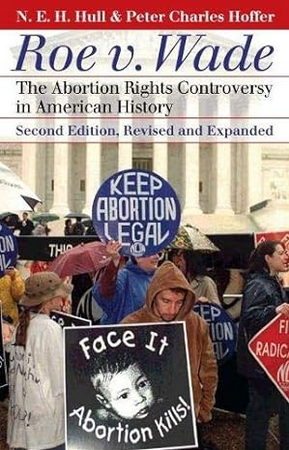
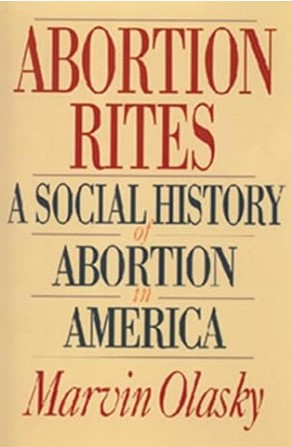
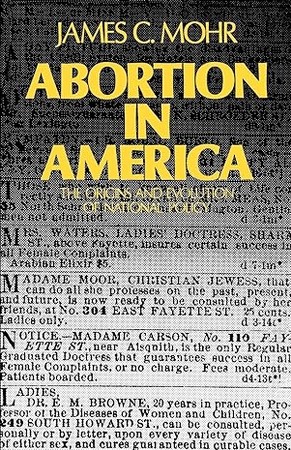
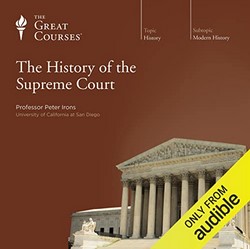


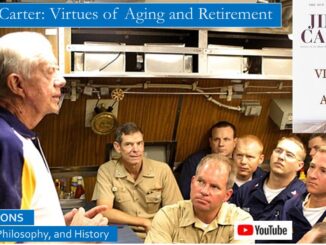
4 Trackbacks / Pingbacks